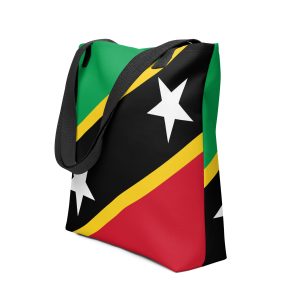1967 Associated Statehood of St. Kitts, Nevis, and Anguilla
On February 27, 1967, St. Kitts, Nevis, and Anguilla achieved Associated Statehood with the United Kingdom, marking a significant step in their political evolution. This new status allowed the islands to control their internal affairs while Britain remained responsible for defense and foreign relations. The shift to Associated Statehood was an important milestone on the road to full independence, as it provided self-governance and control over most domestic policies.
Background: The Path to Statehood
Before 1967, St. Kitts, Nevis, and Anguilla were part of the British colonial system, with limited autonomy. The demand for self-governance gained strength during the 1950s and 1960s, largely driven by labor movements and political leaders from the St. Kitts-Nevis-Anguilla Labour Party (SKNALP). The introduction of universal adult suffrage in 1952 empowered the population and paved the way for political reform, as more people were able to participate in the electoral process .
The Associated Statehood Agreement
The Associated Statehood Act of 1967 gave St. Kitts, Nevis, and Anguilla full control over internal matters, such as education, health, and local governance, while the British government retained control over defense and foreign policy. This arrangement provided a balance between autonomy and continued ties with Britain, seen as a key step towards eventual independence.
The push for statehood was led by figures like Robert Llewellyn Bradshaw, the first Premier of St. Kitts-Nevis-Anguilla and leader of the SKNALP. Bradshaw viewed statehood as a stepping stone toward full sovereignty, which would come in 1983 .
Political and Social Implications
While many in St. Kitts and Nevis welcomed the increased autonomy, there was significant opposition on the island of Anguilla. Anguillans felt neglected by the central government in St. Kitts and demanded more local control. This dissatisfaction led to the Anguilla Revolution, in which Anguilla declared independence from the federation shortly after statehood was granted. The crisis lasted for several years, with Britain eventually intervening and formally separating Anguilla from St. Kitts and Nevis .
Despite the Anguilla conflict, Associated Statehood allowed the government of St. Kitts and Nevis to pass its own laws and manage key aspects of economic development, healthcare, and education without British interference.
Towards Independence
The Associated Statehood period was a vital phase in the islands’ journey toward full independence. Although it did not grant complete sovereignty, it allowed St. Kitts and Nevis to develop its own political and social institutions. By the late 1970s, momentum for full independence grew, led by political figures like Paul Southwell and Sir Kennedy Simmonds, who followed Bradshaw in guiding the islands toward complete self-rule.
In 1983, St. Kitts and Nevis gained full independence, severing the last formal ties with Britain while remaining part of the Commonwealth .
Legacy of Associated Statehood
The 1967 Associated Statehood was a crucial moment in the political development of St. Kitts and Nevis. It provided the islands with control over their domestic affairs and enabled significant progress in areas like infrastructure, education, and social services. However, the Anguilla secession underscored the challenges of governing a federation with competing regional interests.
The political structures established during Associated Statehood laid the groundwork for the independent nation of St. Kitts and Nevis. Leaders like Robert Bradshaw are celebrated for their contributions to this period of growth, as they helped steer the islands toward sovereignty and improved living standards for their citizens.
Conclusion
The 1967 Associated Statehood was a pivotal chapter in the history of St. Kitts, Nevis, and Anguilla. It granted greater self-governance while keeping British oversight on international matters, setting the stage for the islands’ eventual independence in 1983. This period remains a key milestone in the islands’ path to becoming a fully sovereign nation.
Historical Overview of St. Kitts and Nevis
Colonial History
Significant Historical Events
Pre-Columbian Era
European Exploration and Colonization
- 1493 – Christopher Columbus’s Second Voyage
- 1623 – Establishment of the First European Settlement
- 1626 – Kalinago Massacre
Colonial Era
- 1650s – Expansion of Sugar Plantations
- 1666 – French Occupation of St. Kitts
- 1706 – Nevis Raid
- 1783 – Treaty of Paris
20th Century Developments
- 1932 – Founding of the St. Kitts Workers’ League
- 1952 – Universal Adult Suffrage
- 1967 – Associated Statehood
- 1978 – Death of Sir Robert Llewellyn Bradshaw
Independence and Modern Developments
- 1983 – Independence
- 1998 – Nevis Secession Referendum
- 2005 – Hurricane Impact
- 2015 – Team Unity Government
Disclaimer
The information provided on stkittsnevisflag.com is for general informational purposes only. While we strive to provide accurate and up-to-date information, we make no warranties or representations of any kind, express or implied, about the completeness, accuracy, reliability, suitability, or availability of the information contained on this website. Any reliance you place on such information is therefore strictly at your own risk.
stkittsnevisflag.com will not be liable for any loss or damage, including without limitation, indirect or consequential loss or damage, or any loss or damage whatsoever arising from loss of data or profits arising out of, or in connection with, the use of this website.
We encourage all users to verify any information found on this site before relying on it. If you find any incorrect or outdated information, please contact us at info@stkittsflag.com so we can make the necessary corrections.




